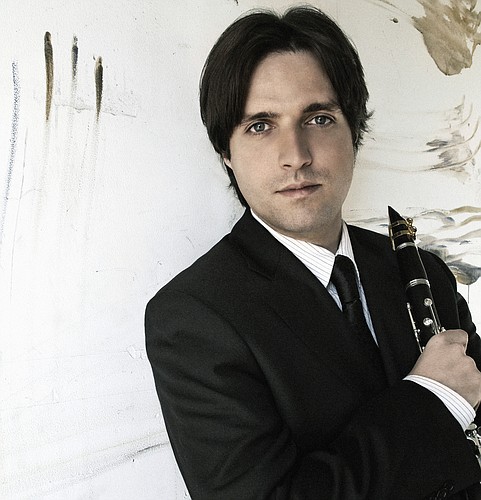- April 25, 2024
-
-
Loading

Loading

La Musica ended its season last Wednesday with a wonderfully sculpted program it played with precision and beauty. Unfortunately, the house was only about half full, so many of Sarasota’s chamber music enthusiasts missed one of the best concerts of the year.
Opening with Mozart’s Clarinet Quintet, clarinetist Jose Franch-Ballester, violinists Massimo Quarta and Laura Zarina, violist Bruno Giuranna and cellist Julie Albers, had all the color and bubbles this work demands. Known over the past couple of decades as the “M*A*S*H” Quintet because it was used to underscore the final episode of the popular TV program, Mozart – who loved the clarinet — pulled out his attaché case of amazing sounds and delivered a work that overflows with melodies and harmonies no one else could or would have devised. There’s just no one like Mozart when it comes to brilliant musical twists and turns and, in his A Major Quintet, the composer gave us everything to make him live up to his “Zauber” (magic) reputation.
The musicians had the kind of blend that comes from understanding and preparation with Franch-Ballester absolutely singing the second movement in a way reminiscent of a great Countess singing “Porgi Amor” in “Le Nozze di Figaro.” It was a memorable performance.
Bartok’s brilliant, jazzy, quirky “Contrasts” followed, with pianist Derek Han joining Franch-Ballester and Zarina. “Contrasts,” which Benny Goodman commissioned for a whopping $300, has everything a musician could want to play and an audience could want to hear, from Hungarian and Romanian folk tunes to spicy jazz. The trio negotiated the contrary motion scales and the lyrical, tipsy dances in bi and poly-modalities with tremendous strength, while Franch-Ballester switched from one clarinet to another and Zarina changed violins (one tuned normally and the other, not). The trio brough exquisite colors to this already colorful work.
Finally, New York Philharmonic principal violist Cynthia Phelps joined Quarta, Albers and Han in Dvorak’s E-flat major Piano Quartet, a work that brings us even more modal sounds and folk themes than Bartok’s “Contrasts.” From the opening unison among the three strings to the rhapsodic Gypsy rhythms, this is an inspired work that’s gutsy, romantic and familiar, because some of the themes sound much like Dvorak’s symphonies. In fact, the main theme in the third movement, which makes use of the harmonic minor scale, is almost a dead-ringer for a theme in the second movement of the composer’s Symphony No. 8, written about 10 years earlier. If you’re going to steal, you might as well steal from yourself, especially when it’s good.
Han, Quarta and Albers were in fine form for their performance, with great attention to the tricky pitches and exuberant rhythms. What a great way to conclude a season.